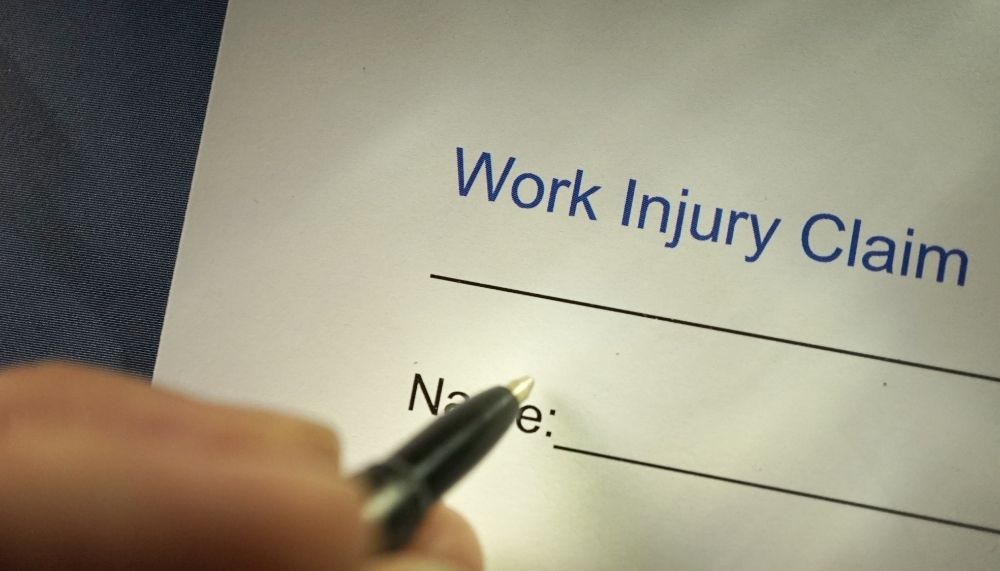San Pedro Workers Comp Lawyer
California workers have the right to a safe workplace and employers are legally obligated to adhere to strict standards to protect their employees from health and safety hazards. This includes properly training employees, providing adequate safety equipment, ensuring all facilities and machinery are up to code, and scheduling regular breaks, among other industry-specific requirements. Although many companies take this responsibility seriously, others fail to promptly address potentially dangerous conditions, and more than two million workers are injured every year as a result. Thankfully, the workers’ compensation system exists to ensure workers have immediate access to qualified medical care after an injury and are not forced to cover expensive medical bills on their own during their recovery period.
If you sustained an injury, developed an occupational illness, or exacerbated an existing medical condition while at work or performing work-related duties, it is important to understand how the workers’ compensation system operates to successfully navigate your claim. Review the information below to learn what to expect from workers’ compensation, then contact Pratt Williams to discuss how a San Pedro workers’ compensation lawyer can help you recover the maximum compensation for your workplace injury.
What Is Workers Compensation?
Workers’ compensation functions similarly to an insurance plan in which employers contribute to a monthly insurance policy that covers employees who experience injuries on the job. Any California business with at least one employee must carry workers’ compensation insurance, provide information on workers’ compensation to new hires, and post a “Notice to Employees” in a visible area of the workplace that informs workers of their right to benefits. In exchange for this coverage, workers essentially surrender their right to pursue personal injury litigation against their employers, except in circumstances that involve employer negligence, intentional harm, or third parties, such as defective products. This protects workers by giving them immediate access to covered medical care and protects employers from the threat of expensive litigation.

Am I Eligible for Workers’ Compensation in San Pedro, CA?
For your workplace injury to be covered by workers’ compensation, you must meet the following eligibility requirements:
- Your employer must have workers’ compensation insurance.
Carrying employer workers’ compensation insurance is mandatory for any business with one part-time or full-time employee, and any employee who works in California must be covered even if the business has headquarters in another state. Failure to provide this coverage is considered a criminal offense punishable by $10,000 in fines per injured employee with compensable damages and/or one year in jail. - You must be an employee.
Certain types of workers are not legally designated as employees for the purposes of workers’ compensation. This includes independent contractors, freelancers, consultants, people who work for aid (housing, food, etc.) rather than wages, domestic workers related to their employers, most volunteers, and students or officials participating in amateur sporting events. Employees are covered regardless of how many hours they work or their citizenship or immigration status. - Your injury or illness must be work-related.
An injury is work-related if it arises out of employment and occurs during the course of employment, or while you are performing tasks that benefit your employer. This includes injuries from accidents, cumulative stress injuries that develop due to work, and occupational illnesses or diseases from on-the-job exposure. Aggravation of existing conditions can be eligible for compensation if you can prove that your condition was worsened by your duties, occurred on the clock, required missing work or seeking medical attention, and caused the need for a new diagnosis or treatment plan. Existing conditions include arthritis, bone and joint inflammation, degenerative disc disease, asthma, heart disease, and mental health disorders.California workers’ compensation is “no fault,” meaning that even if your own actions contributed to the injury-causing accident, you could still recover compensation. However, injuries that occur off-site, during a break, or at a company event are not covered. Other exceptions include injuries that occur while the worker is under the influence of drugs or alcohol, violating company rules, committing a crime, or intentionally trying to harm themselves or others. In most cases, commuting to or from work is not covered, unless you are required to travel to multiple sites for your work duties, drive a company car, or use your personal vehicle to run errands for your employer. - You must report your injury immediately and file your claim before the deadline.
It is crucial to formally notify your employer the moment you sustain an injury or illness or as soon as you discover it, if the symptoms do not appear right away and you are diagnosed at a later date. Your employer will provide a claim form and you must fill out the employee section of this form, then return it to your employer for them to complete and submit to their insurance company. In California, you have one year from the date of becoming aware of your injury to file a workers’ compensation claim. If you fail to meet this deadline, your benefits may be reduced, or your claim may be denied altogether.
What Benefits Can I Recover?
With a valid workers’ compensation claim, you may be entitled to receive the following benefits:
- Medical Expenses – Medical expenses refer to the costs associated with past, present, and ongoing medical care. This includes medical evaluations, diagnostic testing, hospital bills, emergency room treatment, surgical procedures, assistive devices, prescription medication, physical therapy, and any other out-of-pocket medical costs. You can also receive mileage reimbursement of up to 50 cents per mile traveled to healthcare facilities or providers for treatment.
- Temporary Disability – Temporary disability serves as a form of wage replacement for any worker who misses three or more days of work due to their work-related injury or requires hospitalization. These benefits are paid based on your income, and you can recover up to two-thirds of your regular weekly earnings during the time you are unable to work. You must submit medical documentation that your injury prevents you from working and can obtain these benefits for a maximum of two years.
- Permanent Disability – Permanent disability benefits are awarded in cases where the workplace injury causes a permanent or long-term disability that will prevent you from returning to work even after your condition stabilizes and you reach “maximum medical improvement.” Your doctor will determine your percentage of disability according to your specific disability, restrictions, age, health, and occupation, and these benefits are calculated based on this percentage. These benefits can be paid out for four weeks to fourteen years. You may also qualify for a weekly life pension with 70% disability or for the rest of your life with 100% disability.
- Vocational Rehabilitation – If a temporary or permanent disability completely prevents you from working in the same industry or job you held before your injury, Supplemental Job Displacement Benefits provide up to $10,000 for the vocational training or rehabilitation you need to return to the workforce. These benefits can be paid in cash or offered through vouchers that you can use for supplemental assistance in finding a new job, if your previous employer fails to offer you a position with modified or limited duties to accommodate your disability.
- Death Benefits – When a worker dies as a result of bodily harm sustained on the job or while performing job-related tasks, their surviving spouse and children who were dependent on their income can receive compensation through death benefits. This includes reasonable burial expenses up to $10,000 and monthly payments for dependents. The amount of these payments depends on the number of dependents and will continue to pay out until minor children reach their 18th birthday (or for life if they are disabled).
Should I Settle My Workers’ Comp Case?
Many injured workers resolve their workers’ compensation case by obtaining a settlement from their employer’s insurance company. Before you consider a settlement offer, wait until your doctor declares that you have reached maximum medical improvement, or your condition has become “permanent and stationary.” This means that your doctor’s professional opinion is that your condition is stable and unlikely to improve within the next year. They will determine to what extent your injury has caused significant, lasting limitations to your employment potential that would make you eligible for permanent disability benefits. Until you know your percentage of disability, you cannot identify a fair settlement amount.
Deciding whether to accept the insurance company’s initial settlement depends on a variety of key factors, including the amount they offer, the nature and severity of your injury, the limitations you face, the strength of your medical evidence, and your financial circumstances. If they offer a fair amount and you need money right away, accepting the settlement can provide the financial stability you need during your time off work without the hassle and waiting time associated with a hearing. In contrast, if the insurance company disputes your injury or tries to reduce your benefits, taking your case to court with an attorney gives you a much better chance of proving your injury and obtaining the maximum compensation.
How Long Does a Workers’ Comp Case Take to Settle in California?
If you agree to the insurance company’s proposed settlement, a workers’ compensation judge may hold an informal hearing to ensure you understand the settlement and agree that the terms are fair, then either approve or deny the settlement. Your employer’s insurance company may offer a settlement in one of two ways. In a compromise and release settlement, you agree to formally close the case in exchange for a lump-sum payment. You receive this payment within thirty days after approval and cannot reopen your case in the future if your condition worsens. In a stipulated findings and award, you receive permanent disability benefits in biweekly payments. You will begin receiving these benefits two weeks to one month after the judge’s approval and can request additional payment for future medical treatment if it becomes necessary.
How Much Does a Workers’ Comp Lawyer Charge in California?
San Pedro workers’ comp lawyers charge for their services on a contingency basis, meaning they only bill clients if they receive compensation for their injury and their fees are paid from the total compensation amount. If an attorney wins your case, they charge you a percentage of the compensation they deliver on your behalf. This percentage is subtracted from permanent disability and death benefits, but usually does not impact medical benefits or temporary disability unless your employer’s insurance company tried to deny your claim and your lawyer had to fight them to obtain these benefits.
After you have reached a settlement or received an award from a hearing, your San Pedro injury attorney will request the judge to review and approve their fee. The judge will determine the reasonableness of this fee based on the time and resources your case required, the results your lawyer achieved, and the complexity of your case. Personal injury lawyers set their own fees based on their experience, areas of expertise, and location, but the amount you pay typically equals 9% to 12% of the settlement. Simpler cases may incur a lower fee, while more complicated cases, such as those with detailed investigations, multiple employers, or particularly complex legal issues, can incur a 15% contingency fee.
Protect Your Right to Recovery With Expert Legal Representation
Insurance companies are businesses that exist to make a profit, and they are notorious for engaging in dishonest, manipulative, or downright predatory tactics to avoid paying fair compensation. They may pressure you into making a statement about your injuries right away, badger you with phone calls to track the progress of your recovery, promise to offer a higher amount if you do not retain an attorney, or even follow you to try to prove that your injuries are not actually impacting your ability to work. Such invasive and intimidating behavior is often difficult to manage when you’re still recovering, and some injured workers agree to lower settlement awards than they deserve just to end the harassment.
If you are injured in a workplace accident, do not accept a settlement without discussing your case with a San Pedro workers’ comp lawyer. At Pratt Williams, our attorneys have decades of experience negotiating with workers’ compensation insurance companies, so we know exactly how to navigate your case to the optimal outcome. We can protect your rights, answer your questions, and handle all the technical details of your case so you can focus on healing. To ensure you have the best chance of securing the maximum compensation for your injury, contact us today to schedule a consultation.




